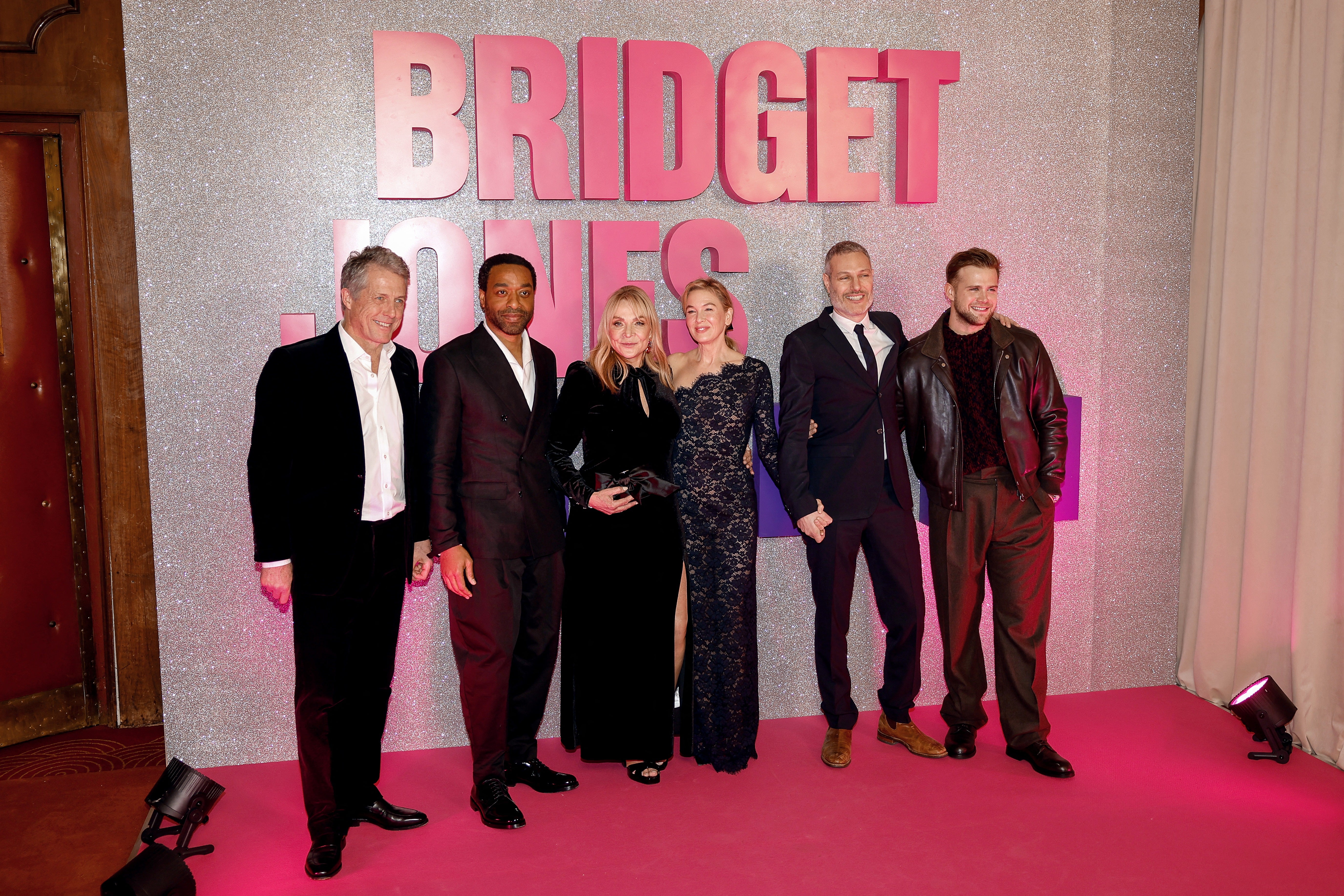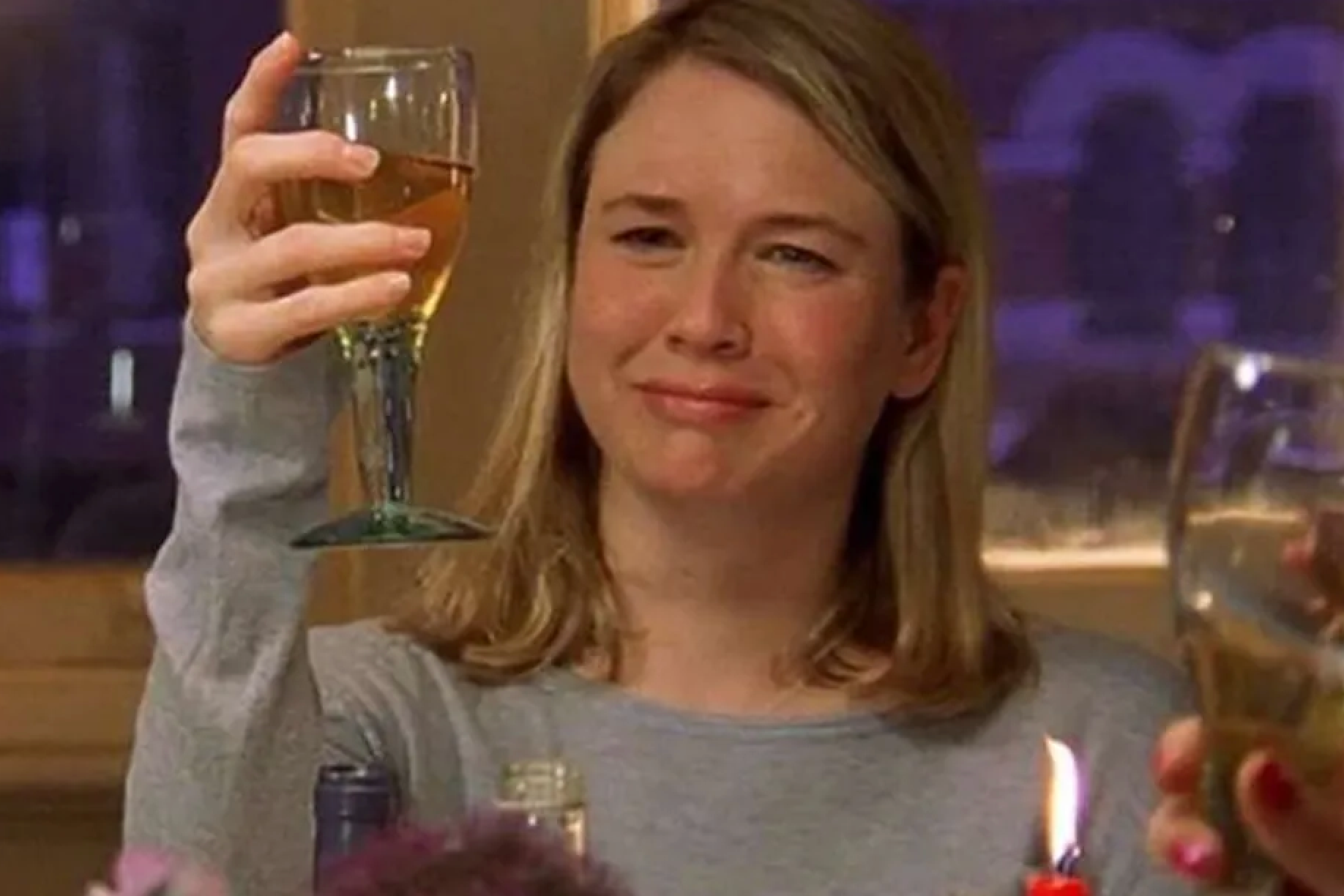In a cluttered London newsroom in the 1990s, amid the hum of fax machines and cigarette smoke, a young journalist began chronicling the misadventures of a hapless singleton navigating life, love, and self-improvement.
Surrounded by colleagues filing dispatches on the war in Chechnya and the rise of New Labour, Helen Fielding sought to write something different – something lighter, wittier, and more relatable. What emerged was a fictional diary, penned under the pseudonym Bridget Jones, a character who would soon define an era.
At the time, the “godmother” of chick-lit was an anomaly – an unapologetically chardonnay-fuelled voice in a media landscape still dominated by hard news and highbrow culture. What began as a playful newspaper column quickly became a cultural juggernaut.
Now, with Bridget Jones: Mad About the Boy surpassing Barbie in UK box office pre-sales, we look back at how it all started – right here at The Independent.

Birth of Bridget
In the mid-1990s, while working at The Independent, Helen Fielding was approached to write a column during a time when "column frenzy" was at its height. Initially hesitant, she declined, fearing it would be "embarrassing and exposing."
However, senior editor Charles Leadbeater suggested she write as an imaginary character, which led to the creation of Bridget Jones.
Fielding had been developing the character in a BBC pilot called "30s Panic," which never got made. She had been trying and failing to get a column for the imaginary character for a while. The opportunity at The Independent allowed her to bring Bridget to life in a weekly column.
The column resonated with readers, capturing the anxieties of single, professional women in a humorous and relatable way. Fielding's portrayal of Bridget's life struck a chord, leading to widespread popularity.
Reflecting on this period, Fielding told this publication in 2016: "I’ll always be grateful to the newspaper for giving me the freedom to write anonymously in an idiosyncratic voice."
Leadbeater, who later advised Tony Blair’s New Labour government, had a knack for spotting cultural moments before they happened.
“I wanted something pitched at the young, single woman, and I wanted Helen to do it because she is a funny writer,” he told Vogue. “She can encapsulate that grey area of inconsistency and eclecticism that characterises a lot of young female experiences. It’s really about being pulled in different directions all the time.”
Speaking to this publication previously, he added: “They would come in to work in the morning, and one minute they would be talking about Gordon Brown and the next about their make-up. And I thought it would be a good idea to have a fictional column to reflect that kind of thinking, which doesn't compartmentalise things.”
But for Fielding, Bridget’s rise was as unexpected as it was meteoric. Writing in secret, she feared her newsroom colleagues wouldn’t take her seriously.
“I never imagined it would last more than a few weeks. I didn’t tell any of my colleagues it was me who was writing Bridget,” she said.
“I was working alongside a lot of very clever, seasoned journalists who were writing about New Labour and Chechnya, and I felt stupid writing about calories and alcohol units and why it takes three hours between waking up and leaving the house in the morning.

“Then we started getting letters praising the column, I started boasting, ‘It’s by me, meeeee!’ and things snowballed from there.”
Inspired by the chaotic, semi-fictional world of journalism – the setting for countless romcoms – Fielding recalled one of her favourite responses to her column.
“Well, there was a very formal letter to The Independent saying, ‘Dear Sirs: I would quite like to shag Bridget Jones. Could you let me have her phone number, please? Yours faithfully, etc.’”
From column to cultural phenomenon
The column’s success led to a book deal, with Bridget Jones’s Diary published in 1996. The novel became a foundational text of modern chick-lit. Barbara Walters dubbed Fielding the “grandmother” of the genre – though she preferred to think of herself as the “godmother.”
Loosely based on Pride and Prejudice – albeit with a lead character prone to far more pratfalls – the book was a sensation, spawning innumerable imitators. Fielding, however, was pragmatic: “I don't think it was imitation: it was zeitgeist.”
The book sequels that followed, Bridget Jones: The Edge of Reason (1999), Bridget Jones: Mad About the Boy (2013), and Bridget Jones’s Baby (2016), were equally successful. Then there was of course the Bridget Jones’s Diary film in 2001, starring Renée Zellweger, Hugh Grant, and Colin Firth. Overnight, Bridget became a global phenomenon.
Fielding never set out for worldwide fame – she was simply writing about her own world. But in doing so, she struck a universal chord.
“Back in the mid-1990s, the way single women in their 30s were presented socially – and certainly in books and films – hadn't caught up with reality,” she told The Guardian.
“The air of Miss Havisham and the tragic barren spinster left on the shelf was still hanging around us. The film Fatal Attraction presented the single 36-year-old as a desperate bunny boiler.”
She added: “We weren't Miss Havisham or bunny boilers. We were products of a new generation, with our own flats, cars, incomes and expectations.
“We weren't single because, as Bridget joked, ‘underneath our clothes our entire bodies are covered in scales.’ We just didn't need to settle for someone who wasn't right, simply to keep life afloat.”
Why Bridget still matters in 2025
Despite changing social norms, Bridget’s core themes – self-doubt, career struggles, romance, and societal pressure – remain just as relatable. Mad About the Boy director Michael Morris told The Independent that, as a man, he sees himself in the “chaotic and imperfect” Bridget.
She has also been embraced by Gen Z, who see her as an early feminist icon. Before mainstream discussions of body image, dating culture, and female independence, Bridget was already navigating those waters – albeit with more Chardonnay spills along the way.
Her impact on British culture is indelible. Phrases like singleton, f***wittage, and smug marrieds have entered everyday vernacular. And her big underpants? As much a part of UK history as Nelson’s Column.
Meanwhile, The Independent’s reputation as a launchpad for innovative storytelling remains unchanged. Bridget may have been born in journalism, but her legacy endures in film, literature, and pop culture.
Some things, of course, have changed. Buying a Zone 1 London flat on an admin salary? Impossible. But others remain timeless – Bridget’s journey is just as relevant as ever, a reminder that her chaotic, heartfelt story is one for the ages.







